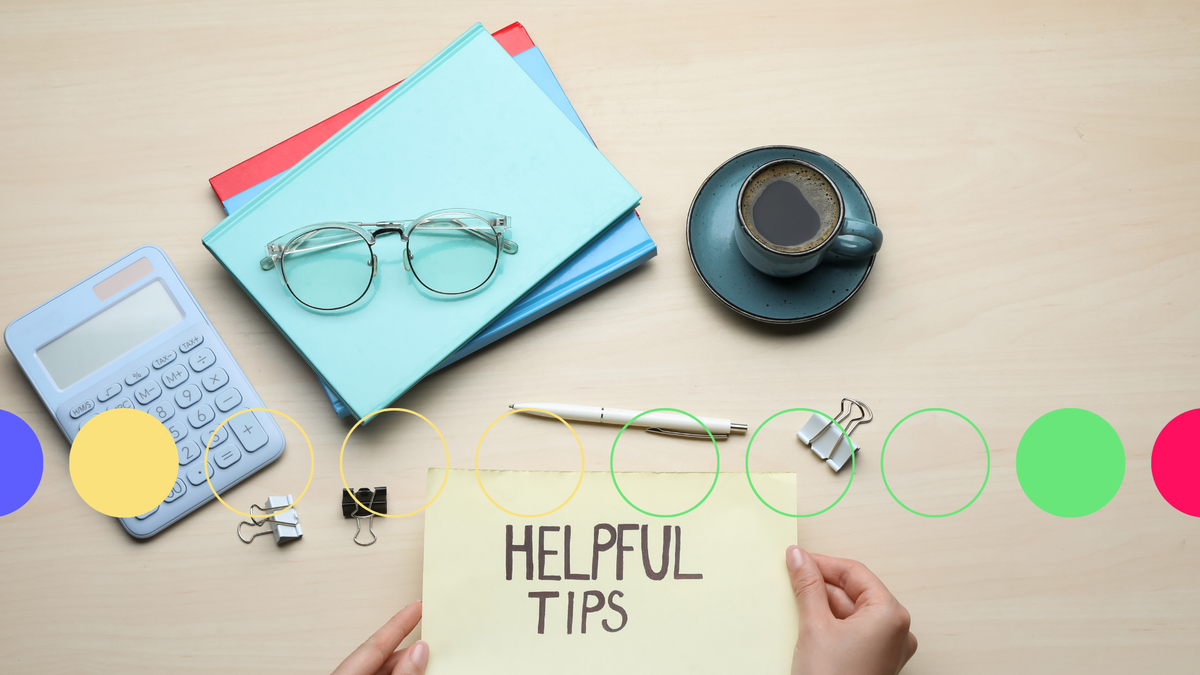4 Essential Tax Year-End Tips for Women Investors | Age 40-54
11 Mar, 2025
The end of the tax year is on the 5th of April so time to get your skates on to make sure you’re using every trick in the book to keep tax low and spring clean your finances.

Women tend to be harder on themselves about our knowledge and ability when it comes to investing – we typically rate our confidence near rock bottom. And we really hate jargon and waffle!
Expert Sam Secomb says at this time of year, the most important thing is to plan ahead - so you don't end up scrambling to use up any allowances in the final days before they run out. So even if you are sorted now, maybe this year set yourself the target of getting set for next year too!
I think the biggest difference between how the savvy investors manage the end of the tax year compared to others is that they actually focus on using the available tax allowances on the first day of the new tax year. Rather than the stress of scrabbling around trying to use the allowances before they expire at the end of a tax year, they’ve been invested for a year already and are just waiting for 6th April to arrive so they can go again! It can add up to a lot of extra loot in ISA and pension pots too because more of your money stays in your investment rather than gets lost to tax.
If you're a female saver or investor aged between 40-54, I've whittled down some top end-of-tax-year tips for people like you. Here are four things to consider this year:
1. Top up your Stocks & Shares ISA
If you already have a Stocks & Shares ISA, you have a £20,000 allowance you can pay in every year. Don’t let this sum put you off – it might only be £100 but that’s OK too. And if you don’t use it, it’s gone for good – you can’t carry it forward. Boring Money research shows that the most common sum held by women investors between 40 and 54 is £18,000 – that’s everything invested, but not including a workplace pension.
The most tax-efficient place for most of our investments is in an ISA. If you don’t have a Stocks & Shares ISA yet, it’s never too late to get cracking – our 2025 Best Buy Awards will help you choose the right one for you. If you do have one but wonder if you’re paying too much, hop over to our comparison table, enter the amount you want to invest, and compare fees across the top ISA providers on the market. I also think an important factor in your decision-making is how confident an investor you are. If you are not at all confident, then filter the tables to see the ‘Ready Made’ options which will do a lot of the heavy lifting for you.
2. Get a state pension forecast
Retirement will feel like a mix of being really far away and also a bit closer than it used to be! Most people in their 40s and early 50s feel like they haven’t done enough for their retirement savings, so don’t be alarmed if that’s you. But you can’t plan if you don’t know where you’re going or where you are today. So a good starting point is to log onto HMRC and get a State Pension forecast. For most of us this will be the foundation of our retirement income, so it’s crucial to work out what this might be. And then we can panic about the other bits!
In order to get the full new State Pension, you typically need to have 35 years of National Insurance contributions. Women may have gaps in their contributions if they’ve taken time out to raise children or care for someone. If this is you, read up on buying back these years, which can be a worthwhile investment to make. A full NI year costs you about £824 to buy, but you get an extra £300 (approximately) a year in State Pension for the rest of your days in exchange. So if you live for more than three years after drawing your pension, it’s usually worth it.
3. Set up a personal pension if you don’t have one already
We can all open a Self-Invested Personal Pension (called a SIPP) online in about 15 minutes, even if you’re not a pensions expert. Our 2025 Best Buy Pension winners are all highly credible options. Why do it? Two main reasons. First, you get tax relief on contributions, which means you get extra top-ups from the government. This can really turbo-charge your retirement savings.
And second – and this is particularly interesting as tax thresholds are currently frozen – pension contributions lower your taxable income. This is really worth understanding for parents where the highest earner has an income just above the new cutoff point of £60,000 for Child Benefit. It is also important for those earning £100,000 or over, which is a horrible number for tax because that’s the point at which you start to lose your Personal Allowance (that band of tax-free income most of us get).
If this is you, do some more digging because a small pension contribution can sometimes make a big impact for multiple benefits.
As the tax year wraps up, don't miss the chance to review and boost your pension contributions. This smart move can lower your tax bill today and secure a more comfortable retirement tomorrow. Why does this matter? You can utilise tax relief by increasing your pension savings and enjoying tax benefits at your highest Income Tax rate. Plus, you can carry forward any unused allowances from the past three years to contribute more and gain extra tax relief. If in doubt, engage with a financial planner to tailor your pension strategy, ensuring it fits your unique situation and future aspirations. Making the most of your pension contributions now is a powerful way to enhance your financial well-being both today and in retirement.
4. Talk to your parents
This can sound pretty brutal but with inheritance tax at an all-time high, more families are starting to plan earlier, to put strategies in place which support gifting or other approaches – if appropriate. Using the annual gift allowance of £3,000 is a good starting point to consider. You can also discuss ‘potentially exempt transfers’ - we have seven years to make gifts of any size without it being subject to Inheritance Tax (IHT). This year, the government is on course to pocket a record £8 billion in IHT receipts.[1] This is a sensitive subject and tricky to navigate, but open discussions now can save difficult conversations further down the line when time is not on your side.
________
[1] Irwin Mitchell, December 2024





